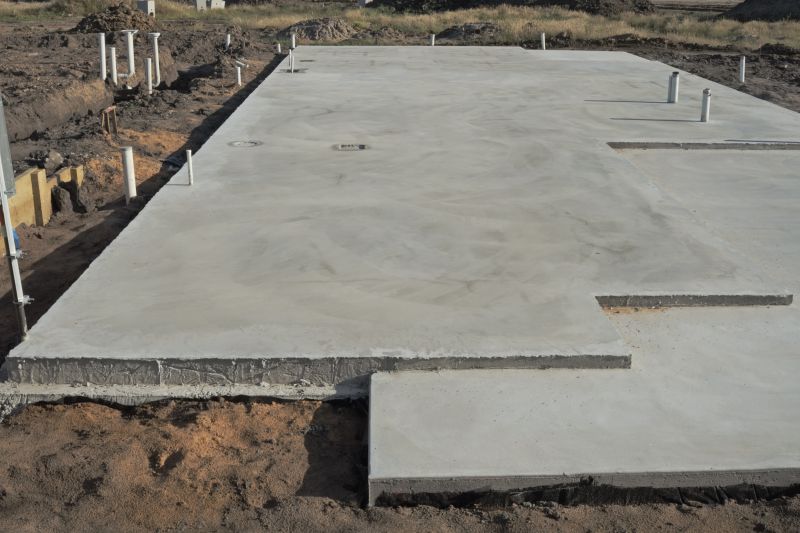Ultimate Guide To Poured Wall Foundation Service Products
Find out which key tools and supplies are vital for efficient and high-quality poured wall foundation construction.
 Constructing a poured wall foundation is a critical step in building a stable and durable structure. The process involves pouring concrete into forms to create a solid barrier that supports the weight of the building and resists environmental stresses. Proper preparation and the right selection of products are essential to ensure the foundation's longevity and structural integrity. From form materials to reinforcement options, there are numerous products designed to facilitate and enhance the poured wall foundation process.
Constructing a poured wall foundation is a critical step in building a stable and durable structure. The process involves pouring concrete into forms to create a solid barrier that supports the weight of the building and resists environmental stresses. Proper preparation and the right selection of products are essential to ensure the foundation's longevity and structural integrity. From form materials to reinforcement options, there are numerous products designed to facilitate and enhance the poured wall foundation process.
Top Overall Option
Concrete Form System
A versatile concrete form system provides a reusable, sturdy framework for shaping poured walls. Its modular design allows for customization to fit various wall sizes and shapes, facilitating efficient construction. The system's durability and ease of assembly make it a popular choice for contractors seeking consistent results and streamlined workflows.
Types of Products For Poured Wall Foundation Service
Reusable Concrete Forms
Durable forms that can be used multiple times, offering flexibility and cost-effectiveness for shaping poured walls.
Reinforcing Steel (Rebar)
Steel bars or mesh used to reinforce concrete, enhancing its strength and durability.
Waterproofing Membranes
Protective barriers applied to foundation surfaces to prevent moisture penetration and water damage.
Form Release Agents
Chemical solutions applied to forms to facilitate easy removal and prevent concrete from sticking.
Vibrators
Tools used to eliminate air pockets and ensure proper compaction of concrete within forms.
Insulation Boards
Materials installed on the exterior or interior of the foundation to improve thermal efficiency.
Anchor Bolts
Hardware embedded in concrete to secure structural elements and framing components.
Expansion Joints
Flexible joints incorporated into the foundation to accommodate movement and prevent cracking.
Form Ties
Support components used to hold forms together during concrete pouring and curing.
Crack Repair Products
Materials designed to seal and repair cracks that may develop in poured concrete walls.
Drainage Systems
Drainage solutions installed around the foundation to direct water away and reduce hydrostatic pressure.
Protective Coatings
Surface treatments that provide additional resistance to moisture and chemical exposure.
Leveling Tools
Tools such as laser levels and spirit levels to ensure proper alignment and flatness of forms and poured walls.
Concrete Mixers
Equipment used to prepare and mix concrete on-site for pouring into forms.
Form Liners
Decorative or textured liners used to create aesthetic finishes on poured concrete surfaces.
Popular Choices
Steel mesh used within forms to reinforce concrete walls, enhancing structural integrity.
Flexible membranes applied to foundation surfaces to provide moisture barriers.
Concrete blends formulated for durability and strength in foundation applications.
Support components that hold forms securely during pouring and curing phases.
Portable vibrators used to compact concrete and eliminate air pockets during pouring.
Flexible seals installed at joints to prevent water infiltration in foundation walls.
Rigid foam panels used to insulate foundation walls for thermal efficiency.
Perforated pipes installed around the foundation to facilitate water drainage.
Products designed for filling and sealing cracks that develop over time in concrete walls.
Protective coverings that help maintain moisture during concrete curing.
Pre-measured hardware for securely anchoring structural elements to concrete.
Flexible foam materials used as expansion joints within poured walls.
Specialized forms used to create clean, finished edges on poured walls.
Devices such as laser levels to ensure precise form placement and wall alignment.
Chemical admixtures that improve workability, setting time, and durability of concrete.
Quality form systems are fundamental, providing the molds necessary to shape the concrete accurately while ensuring ease of removal once the concrete has set. Reinforcement materials such as rebar and wire mesh are used to strengthen the concrete, helping it withstand stresses over time. Additionally, waterproofing products play a vital role in protecting the foundation from moisture infiltration, which can compromise structural stability and lead to issues like cracking or mold growth.
Tools and accessories, including vibrators and fasteners, help achieve a smooth finish and secure formwork. Insulation options may also be incorporated to improve energy efficiency and thermal performance of the foundation. When selecting products for a poured wall foundation, it is important to consider compatibility, durability, ease of installation, and the specific requirements of the project site. Properly chosen products can streamline construction, improve safety, and contribute to a long-lasting foundation that supports the building for years to come.
Key Buying Considerations
- Compatibility with existing construction methods and materials.
- Durability and resistance to environmental factors such as moisture and chemicals.
- Ease of installation and handling, especially for reusable forms and reinforcement.
- Project size and scope to determine appropriate product capacities.
- Cost-effectiveness over multiple uses or long-term durability.
- Availability of replacement parts and accessories for forms and tools.
- Compatibility of reinforcement materials with concrete mix specifications.
- Moisture barriers and waterproofing products suited to local conditions.
- Thermal insulation properties if energy efficiency is a priority.
- Ease of removal and clean-up after concrete curing.
- Compliance with local building codes and standards.
- Manufacturer reputation for quality and customer support.
- Safety features and ease of use for tools and equipment.
- Environmental conditions of the site that may influence product choice.
- Potential need for specialized products like crack repair or drainage systems.
This page contains affiliate links. We may earn a commission if you make a purchase through these links, at no additional cost to you.
